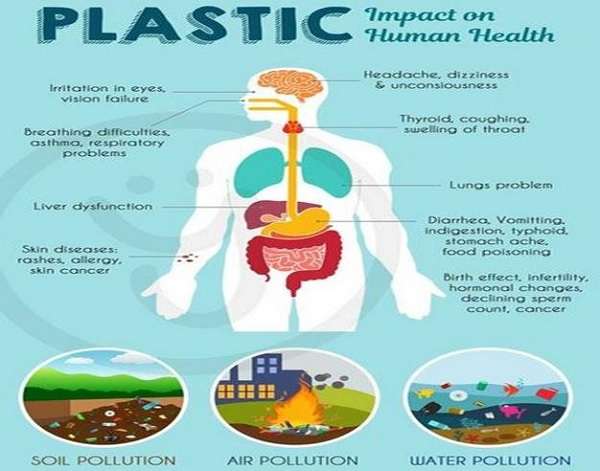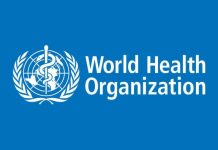
With the potential to reduce the surging rate of cancers, immunodeficiency, infertility in women and developmental health issues in children, to what extent can the partnership between Nestlé and Wecyclers go in helping to recycle Nigeria’s mammoth and ubiquitous plastic waste? TEMITOPE OBAYENDO reports the various sides to the story.
Effective plastic waste management is a genuine concern of many ecologists and toxicologists in Nigeria, especially as the nation grapples with the adverse effects of indiscriminate disposal of plastic waste on human health, wildlife and the environment. Specifically, experts have established that plastic products contain toxic chemical additives, many of which been associated with serious health conditions, such as hormone-related cancers, infertility in women, as well as neurodevelopment disorders, such as ADHD and autism, in children.
According to the World Health Organisation (WHO), cancer is one of the world’s leading causes of death, with breast cancer being the most common cancer worldwide and leading cause of cancer death among women. Interestingly, the apex health agency has also linked dioxin – a highly toxic environmental pollutant, usually found in industrial waste products like plastics – to the prevalence of cancer, immune system disruption, hormonal imbalance and other reproductive and developmental problems.
In 2021, an estimated 20 million people were diagnosed with cancer, and 10 million died. This is even as it has been predicted that the figures will continue to rise in the decades ahead, if no concerted efforts are made to tackle known causes of cancer in the society.
With Nigeria ranked as the second largest importer of plastics in Africa and accounting for 17 per cent of the total consumption of plastics on the continent, the need to develop an efficient plastic waste management system has become a matter of urgency. This apparently necessitated the recent pact between Nestlé Nigeria Plc and Wecyclers Corporation to drive an initiative that will tackle plastic pollution in the country headlong.
This strategic synergy, according to the partners, aims to promote environmental sustainability, thereby reducing the circulation of carcinogenic chemicals and other toxic substances in the country. The partnership also rewards people who take their recyclable items to any of the Wecyclers collection centres, through its “wastes to wealth” campaign.
It is indeed heart-warming that, while the nation as a whole is still struggling to establish a sustainable plastic waste management scheme, socially responsible private organisations are setting the pace in ridding the nation of waste-induced reproductive and developmental health conditions, as well as creating a friendly environment for humans and animals.
Progress reports
It is pertinent to note that Wecyclers Corporation is a social enterprise known for promoting environmental sustainability, community health and socioeconomic development, by providing convenient recycling services in densely-populated urban neighbourhoods. Thus, beyond prioritising women and children’s healthcare, the ongoing initiative also addresses the health needs of most low-income people living in slum areas without formal waste collection centres. Findings have shown that living in such a condition predisposes such people to perennial morbidity, such as malaria, cholera, and dysentery attacks, in addition to undue psychological stress. Reports have also revealed that indiscriminate disposal of plastic waste causes blockage of gutters and drainage canals, leading to floods or stagnant water pools, which are ideal conditions for mosquitoes and other disease vectors to breed.
Speaking in an interview during an experiential tour of Wecyclers’ facility on 149, Bamgbose Street, Lagos Island, the Business Development Manager, Esther Fagbo Chibuenyi, shared progress recorded since the organisation signed the agreement with Nestlé. She mentioned the creation of more collection centres, which, she said, had yielded increase in the amount of recyclables collected. She also disclosed how Wecyclers’ franchise system has enriched and empowered individuals who have caught the vision of transforming their waste to wealth.
Chibuenyi narrated: “Last year, we started the franchise system with Nestle, and very recently, we recorded an outstanding result as we collected about 80 tonnes of recyclables last month. We have about eight franchises currently and two of those franchises belong to Nestle. Our franchise system operates like your pulse system; it empowers people that are interested in recycling.
“Interested individuals can use our platform and our app to connect with us. The app rates materials differently like paper, plastic or cardboard. We weigh them differently because each of them has different point per weigh. These points are what we convert to cash and pay them at the end of every quarter.”
She added: “Currently, we are collecting through the kiosk model as we have centres in Obalende, Makoko, and five other stalls at different locations in the state, where consumers can drop their waste plastics. This partnership with Nestle is helping us gather more items from the environment.
“In rewarding people, we convert those points into cash, so one can understand how much individuals are paid. It’s very lucrative as people are earning from it, serving as a means of job creation for many unemployed persons in the community.”
Beneficiaries’ stories
One of the beneficiaries of the waste to wealth scheme, Mr Kola Kehinde, a petty trader, who spoke with our correspondent during the facility tour, explained how the programme has boosted his finances.
He said, “I engage in the collection of waste as a second means of income. I deliberately gather reusable plastic waste from my neighbours and along the streets, store them up in a safe place, and when they are sizable enough to give me some valuable cash, I take them to the collection centre nearest to me, where the materials are weighed and I get paid accordingly.”
Another beneficiary, Mrs Tawa Aliu, a dealer in soft drinks and bottled water, also shared her experience with our correspondent. She said she got to know about the programme from a friend, and soon started exploring it to her advantage. For Aliu, it was an easy avenue to make more money, as she was already in the business of plastic items, especially the ones that pollute the environment the most.
According to her, “Since I sell in packs to my customers, what I do is that I plead with them not to trash the empty plastic bottles, and I give them a fixed date for collection in their homes. Initially, it wasn’t working out, as some of them forgot and trashed the bottles. But with constant reminders overtime, they got accustomed to the environmental sustainability culture.”
The LBS connection
Commenting on the partnership, Public Affairs Specialist, Nestlé Nigeria Ltd., Mrs Edidiong Peters, said the initiative is part of Nestlé’s contribution to promote environmental sustainability among Nigerians. She added that the partnership is also in collaboration with the Lagos Business School (LBS) Sustainability Centre, in tackling plastic pollution.
“As a company, we recently launched the ‘Employees Plastics Collection Scheme’. We want our staff to bring their plastics and recyclables to the office. And in collaboration with Wecyclers, we ensure that the plastics are received and properly recycled and the staff get paid for their contribution”, Peters stated.
In her contribution, Senior Associate, Sustainability Centre, LBS, Ms Theresa Akpoveso, said the partnership would create more awareness on plastic pollution for Nigerians. According to her, the LBS Sustainability Centre, in partnership with Nestlé, wants to raise the awareness of environmental issues and nutrition.
“We want people to be able to take actions, and we identified the media as one of the major stakeholders that will help us to achieve this,” she said.
Ecological perspective on plastic waste recycling
Considering the magnitude of damage done by plastic pollution to human health and ecosystem, it is not surprising that the issue of plastic waste management has become a subject public debate. Some are of the opinion that the use of non-biodegradable plastics should be outlawed altogether, while others have called for the replacement of non-biodegradable products with biodegradable products that are environmentally-friendly.
In a chat with an ecologist, Mr Temitope Ogunweide, on the issue, he expressed sadness over the ubiquitous nature of plastic waste in Nigerian communities, stressing its huge impact on health.
Ogunweide said: “We must also consider the effects of plastic products on our health; plastic bags contain some pollutants such as PCBs (polychlorinated biphenyl), together with PAHs (polycyclic aromatic hydrocarbons) which are hormone disrupting. It can lead to cancer or some other serious health challenges in humans.”
The ecologist advocates use of biodegradable plastic bags, water sachets and plastic bottles, which can be easily recycled. He also urged Nigerians to embrace the habit of disposing their recyclable items at designated centres for collection.
Need for more collection centres
While the collaboration between Nestle’ and Wecycler continues to achieve its laudable objective of creating a healthy and sustainable environment, analysts have called for the expansion of the scheme, through the creation of more collection points. This, they believe, will facilitate the proximity of collection kiosks to people, which will serve as a motivation for them to easily access collection points.
Chibuenyi affirmed this: “The major problem we are having is that we are not collecting enough as expected. We still have plans to expand as we are discussing with our partners on ways that we can expand and have more kiosks all over.
So, we need more collection centres to receive items directly from sources.”










